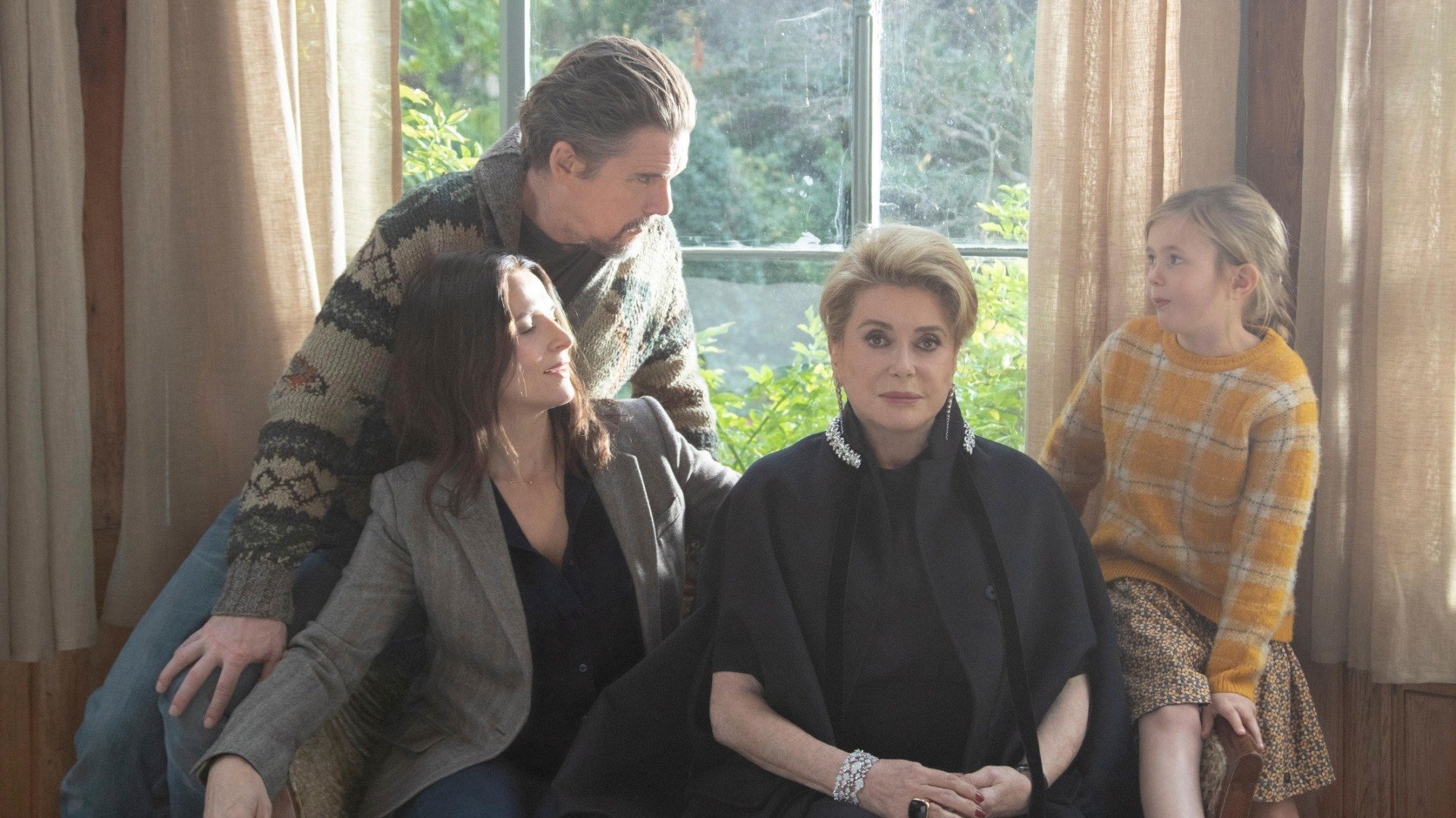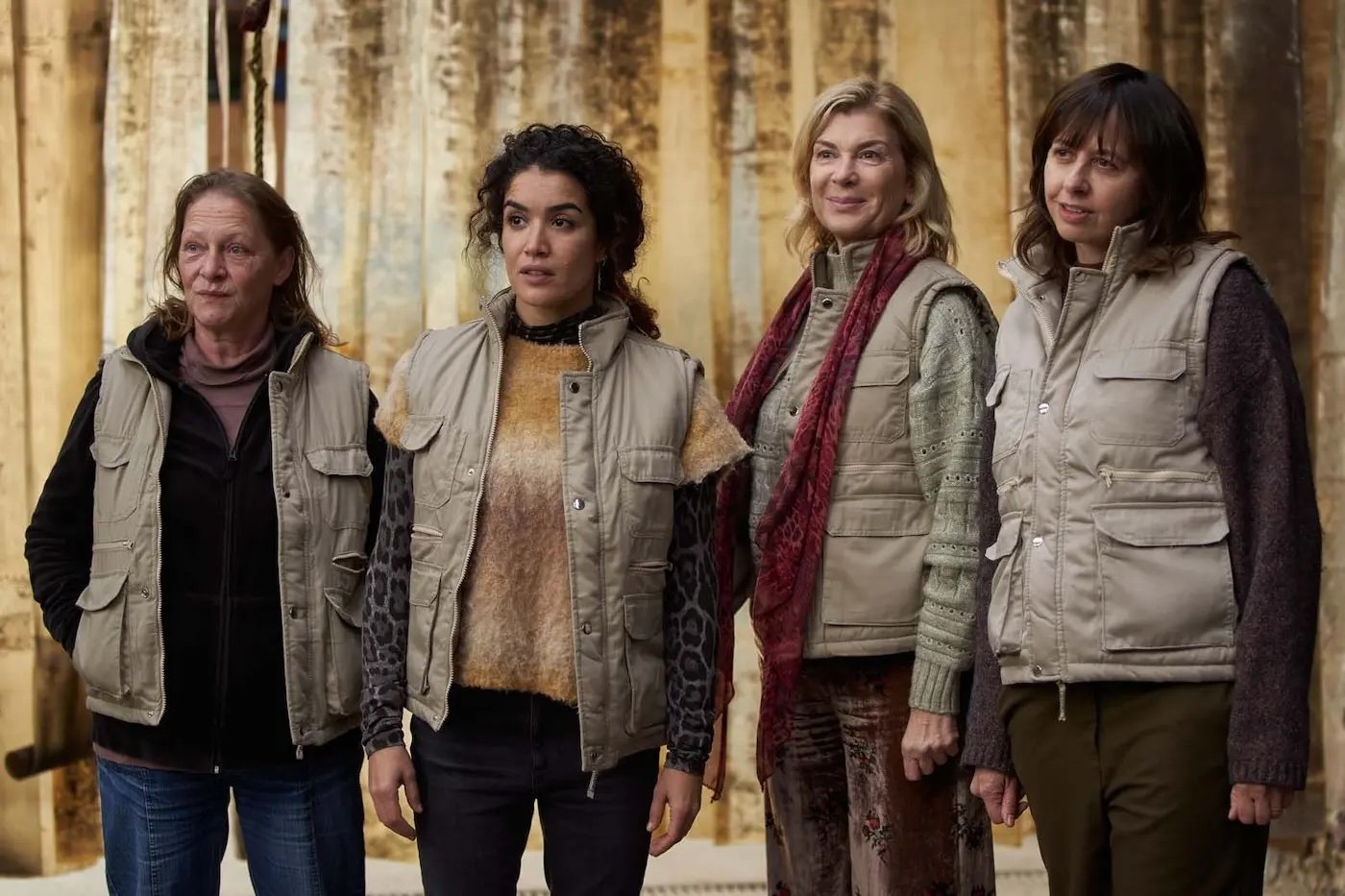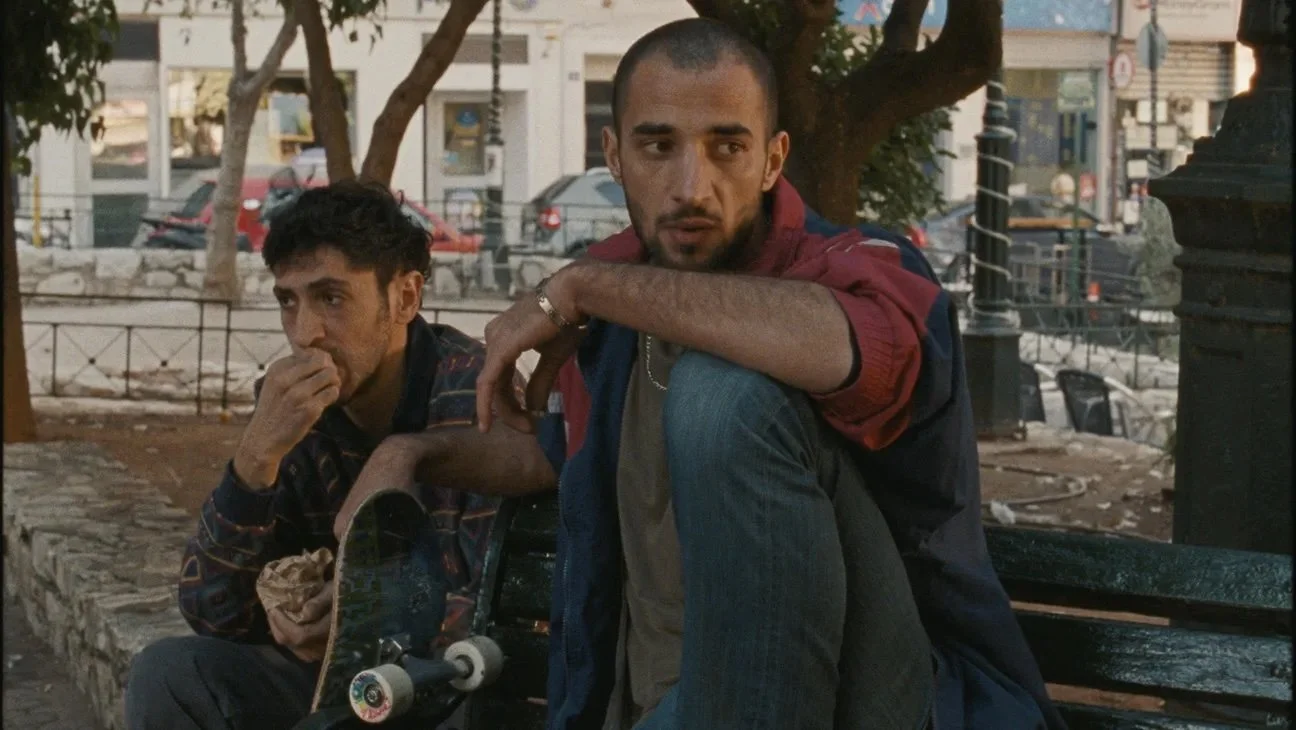Film review: The Truth dissects the little lies that family members tell each other and themselves
French screen legends Catherine Deneuve and Juliette Binoche star in Hirokazu Kore-eda’s subtle look at mother-daughter dynamics
Juliette Binoche, Ethan Hawke, and Clémentine Grenier play a family visiting Catherine Deneuve’s movie-star-matriarch in The Truth.
The Cinematheque screens The Truth on December 4, 5, 8, and 9 as part of Family Matters: The Films of Kore-eda Hirokazu
AS PART OF ITS celebration of Shoplifters director Hirokazu Kore-eda, The Cinematheque is screening his first non-Japanese film—and, in a testament to his skills, it feels très, très French.
That derives in large part from the fact that the Paris-set The Truth stars two of France’s biggest female stars: screen legend Catherine Deneuve and Juliette Binoche, portraying a mother and daughter who have a strained relationship.
They reunite in Fabienne’s (Deneuve) grandly atmospheric house in the 14th Arrondissement, Lumir (Binoche) and her husband (Ethan Hawke) and young daughter’s (Clémentine Grenier) arrival greeted at the beginning with the aging star’s classic hauteur. When a visiting journalist enquires about the trio entering her yard, Fabienne, ever-present cigarette smoke curlicuing around her head, deadpans, “It’s nothing. My daughter and her little family.” “And she married that actor?” the reporter prods. “‘Actor’ is saying a lot,” she says. Ouch.
Many of this movie’s pleasures centre around Deneuve’s mystique. In just one of Kore-eda’s plays on the idea of “truth”, the actor toys willingly and fascinatingly with her persona as an icy screen queen. (That persona has been added to recently by Deneuve backing controversial director Roman Polanski and signing a manifesto deriding the #MeToo movement. But we digress.) In the film, she’s a high-maintenance diva who complains incessantly about the tiramisu and tea her staff serve her, and ruthlessly cuts up her costars.
Fabienne has just finished publishing a memoir called La Vérité. Reading it for the first time, her daughter is startled to learn this little exercise in narcissism not only strays from the truth but is full of lies—starting with the idyllic stories of walking her daughter to school each morning, and the assertion that Lumir’s father (Fabienne’s long-ago ex) is dead. Well into adulthood, Lumir is still grappling with the fallout of an absent, self-obsessed parent who treated her with derision. When Lumir tries to confront Fabienne, she gets unapologetic responses, like, “I’d prefer to be a bad mother, a bad friend, and be a good actor.”
But the tables of the relationship start to turn when Deneuve begins shooting a science-fiction movie. Kore-eda is known for his subtle, naturalistic excavations of family dynamics, but he can also take out-there narrative risks—most notably in After Life, his film about souls choosing memories in a limbo realm. In the case of this strange film-within-a-film, Deneuve plays the aging daughter of Manon (Manon Clavel), a woman forced to live on a spaceship to stay alive; the mother, who never gets older herself, returns to Earth every seven years to visit her child. Watching scenes, Lumir makes emotional connections to her own absentee parent. And playing assistant to her mother, who masks her struggles to continue acting by ridiculing the film, Lumir starts to see the steely Fabienne in a vulnerable new light.
The film’s best scenes come when Deneuve lets down her guard. In one scene she flees the film set to the back seat of her limousine, pulling off her grey wig to shake out her still iconic blond-highlighted mane, and demanding to get crepes with the impulsivity of a child. On-set, notice her watching her young and translucent costar Manon—barely detectable envy seeping through the ire.
It’s Hawk’s unaffected goofball Hank who nails Fabienne most closely: “She seemed sad to me,” he tells his wife, who’s almost startled by the description.
Kore-eda’s films about family relationships are more about accumulation than story arc; they trace the small revelations that come through conversations and glances, but also through what’s left unsaid, or what characters are unable to tell each other. Yes, The Truth is about how acting blurs reality on- and offscreen, but it’s also about the lies we tell ourselves to get by, and the way we hold our own “truths”—because memory is always faulty and subjective. Consider the “truth” that the outsider Hank sees in the relationship between Lumir and Fabienne, versus Lumir’s victim-centred narrative: “I think you wanted to make her jealous—of our family,” he notes, assuring his wife that the ploy won’t work.
The Truth’s payoffs are subtle—and perhaps that’s another reason why it feels so “French”. We are used to Hollywood movies that build up to a big revelation, but Kore-eda shows us that maybe “the truth” lies in the smaller, almost imperceptible moments.













